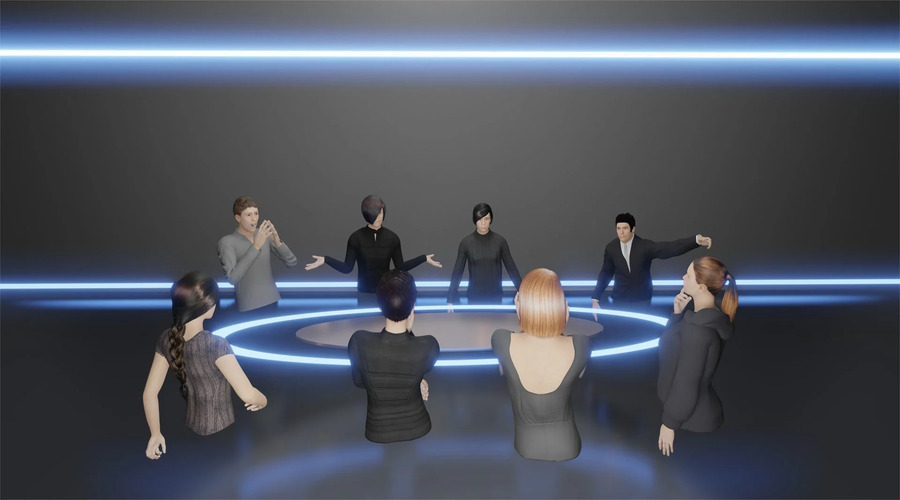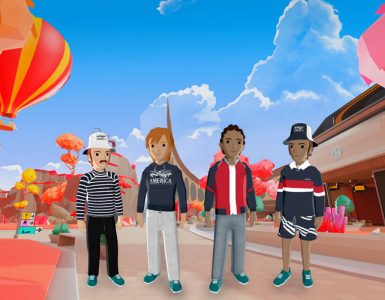The concept of the Metaverse has captured the imagination of many, offering a glimpse into a future where we can immerse ourselves in new digital worlds, interact with others, and experience new forms of storytelling and media. This virtual world is expected to be a massive interconnected space, where users can access different platforms and engage in various activities, from gaming to education, socializing, and shopping.
One of the most exciting aspects of the Metaverse is its potential to create new forms of immersive storytelling and media. In this blog post, we will explore how the Metaverse can revolutionize the way we experience storytelling and media.
Immersive storytelling in the Metaverse
The Metaverse offers a unique opportunity to create immersive storytelling experiences that go beyond what is possible in traditional media. In the Metaverse, users can become part of the story, interacting with the environment and other characters in a way that feels real and engaging.
For example, imagine a virtual reality experience where you become the main character in a story. You can move around, explore the environment, and interact with other characters, making choices that affect the outcome of the story. This type of interactive storytelling is not possible in traditional media, such as books, movies, or even video games.
In the Metaverse, storytelling can also be a collaborative experience. Users can participate in shared narratives, co-create stories with others, or even create their own narratives from scratch. This creates a new level of engagement and creativity, as users become co-authors of the story.
Media in the Metaverse
The Metaverse can also transform the way we consume and interact with media. Traditional media, such as TV, movies, and music, have been transformed by digital technology, but they still rely on a one-way communication model, where content is consumed passively by the audience.
In the Metaverse, media can be interactive, personalized, and social. Users can customize their media experience, choosing what they want to watch, listen to, or read. They can interact with the content, commenting, sharing, and even co-creating media with others.
For example, imagine a virtual cinema where users can watch a movie together, chat, and comment on the film in real-time. This creates a new level of engagement and socialization, as users can share their opinions and reactions with others.
The Metaverse can also create new opportunities for content creators, such as artists, musicians, and filmmakers. They can reach a global audience and create new forms of media that are tailored for the Metaverse. This creates a new market for media, where creators can monetize their content through various means, such as subscriptions, advertising, or virtual goods.
Challenges and opportunities
While the Metaverse offers exciting opportunities for immersive storytelling and media, it also poses challenges that need to be addressed. One of the main challenges is to ensure that the Metaverse is accessible to everyone, regardless of their background or financial status. This requires addressing issues of affordability, accessibility, and inclusivity, as well as ensuring that the Metaverse does not perpetuate existing social inequalities.
Another challenge is to ensure that the Metaverse is safe and secure for users. This includes addressing issues of privacy, data protection, and cybersecurity, as well as ensuring that users are protected from harassment, abuse, and other forms of harmful behavior.
Finally, there is a need to ensure that the Metaverse is sustainable and environmentally friendly. The Metaverse requires significant computing power and energy, and it is essential to ensure that it does not have a negative impact on the environment.
Socialization in the Metaverse
In addition to immersive storytelling and media, the Metaverse can also revolutionize the way we socialize and connect with others. In the Metaverse, users can create and join virtual communities based on shared interests, values, or goals. They can socialize, collaborate, and even build relationships with others, regardless of their physical location.
For example, imagine a virtual conference where users can attend sessions, network with others, and engage in discussions. This creates a new level of socialization and collaboration, as users can connect with others from around the world.
The Metaverse can also create new opportunities for education and learning. Users can attend virtual classes, workshops, or training sessions, and interact with instructors and other students in real-time. This creates a new level of engagement and interactivity, as users can ask questions, share ideas, and learn from others.
Business and commerce in the Metaverse
The Metaverse can also create new opportunities for business and commerce. Virtual marketplaces can be created where users can buy and sell virtual goods, such as avatars, skins, or virtual real estate. Users can also purchase virtual services, such as design, programming, or consulting.
In addition to virtual goods and services, the Metaverse can also create new opportunities for advertising and marketing. Brands can create virtual experiences or sponsor virtual events, reaching a global audience and creating new forms of engagement and awareness.
The Metaverse can also create new opportunities for remote work and collaboration. Users can work together on virtual projects, share information and ideas, and collaborate in real-time, regardless of their physical location. This creates a new level of flexibility and productivity, as users can work from anywhere, at any time.
Conclusion
The Metaverse has the potential to create new forms of immersive storytelling, media, socialization, education, business, and commerce. While the Metaverse poses challenges, such as accessibility, safety, and sustainability, the opportunities it presents are immense. The Metaverse can create a new digital frontier, where users can explore new worlds, interact with others, and create new forms of content and value. The Metaverse is still in its early stages, but the possibilities it presents are truly exciting.



